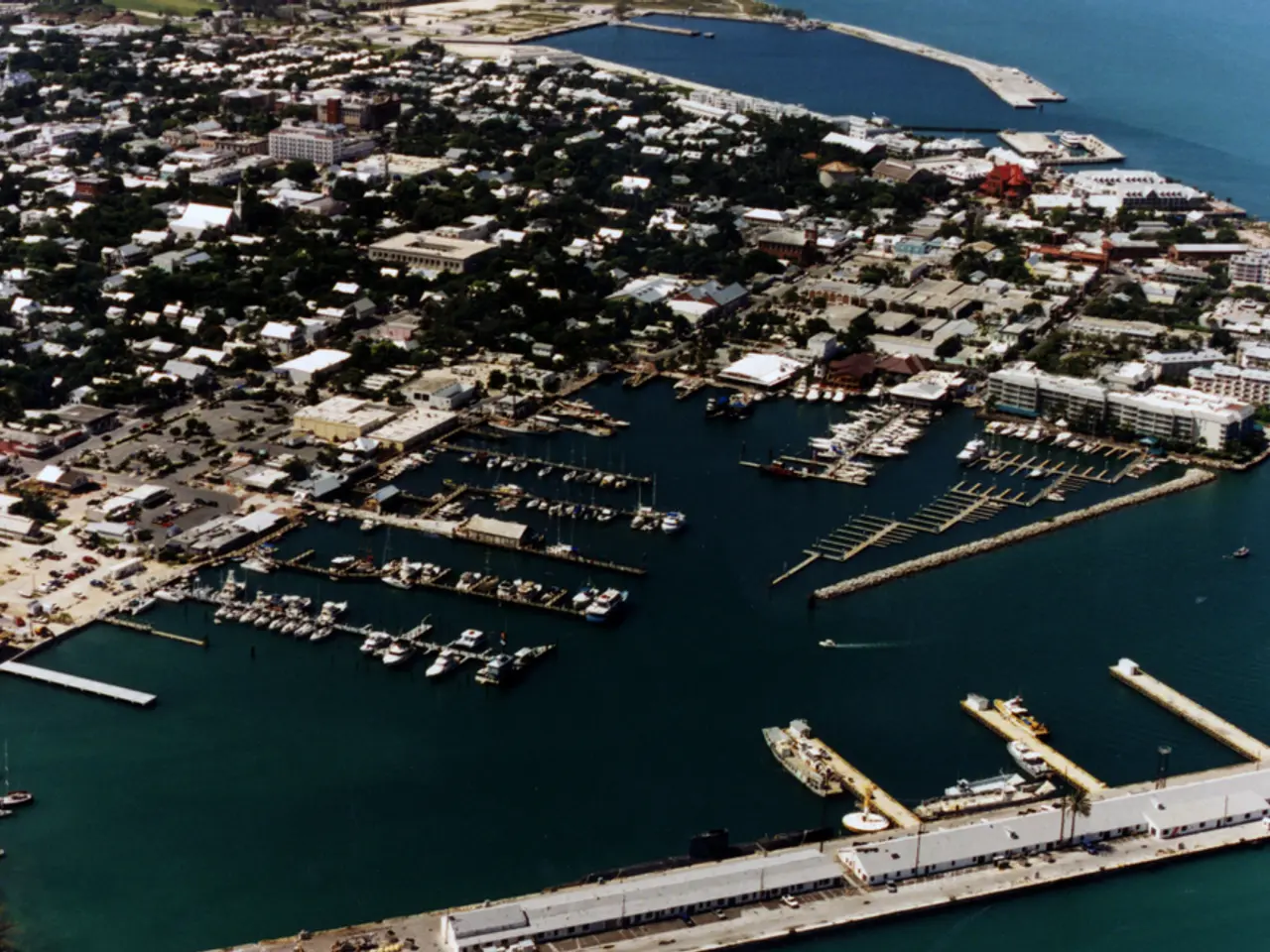Strike incapacitates NOK with no respite in sight
The North Sea-Baltic Canal, also known as the Kiel Canal, is currently facing disruptions due to a strike by union ver.di. The strike, which began after 11.03.2025, has caused a standstill in the heavily trafficked waterway, preventing ships from using it.
The strike aims to put pressure on the federal government due to lost canal tolls. The standstill in the canal has resulted in significant revenue losses for the government, although the exact amount remains uncertain.
Environmentally, the strike is leading to longer, more environmentally damaging routes for ships. Forced rerouting of vessels away from the canal increases transit distances by about 250 miles, leading to higher fuel consumption and consequently greater emissions of greenhouse gases and air pollutants. The longer routes involve travel through more open and potentially environmentally sensitive waters, increasing the risk of accidents, spills, and disruption to marine habitats.
For shipping companies, the strike-induced closure or restricted usage of the canal increases operational costs due to longer voyage times, higher fuel usage, and greater crew expenses. These factors collectively raise shipping freight rates and overall logistical costs because vessels must navigate around the Danish Straits and other longer passages, which can also be subject to regulatory and security risks, further increasing expenses. Additionally, delays might disrupt supply chains, impacting shipping schedules and contractual obligations.
The broader geopolitical and security tensions in adjacent maritime areas add further complexity and risk to shipping routes connecting the North Sea and Baltic Sea, exacerbating cost and environmental concerns due to increased insurance premiums and security measures.
Jens Knudsen of the Initiative Kiel-Canal continues to criticize the strike, as it threatens the canal's attractiveness. The strike has caused significant disruptions to shipping traffic in the North Sea-Baltic Canal, and its duration remains unknown. The federal government is under pressure due to lost canal tolls as a result of the strike.
The union's expected revenue losses from the strike remain uncertain, but the strike has not yet been resolved. The canal's lock chambers in Brunsbüttel and Kiel remain closed due to the strike, and it is unclear when normal operations will resume.
- The disruptions to the North Sea-Baltic Canal have led to increased operational costs for shipping companies, due to higher fuel usage, longer voyage times, and greater crew expenses.
- The standstill in the canal has resulted in significant revenue losses for the government, with the exact amount remaining uncertain, as the strike's duration is yet unknown.
- The strike, despite causing environmental damage through longer, more polluting shipping routes, is a source of pressure on the federal government due to lost canal tolls.
- While Jens Knudsen of the Initiative Kiel-Canal criticizes the strike for its disruption to shipping traffic, the union's expected revenue losses from the strike remain uncertain, as the strike has not yet been resolved.




